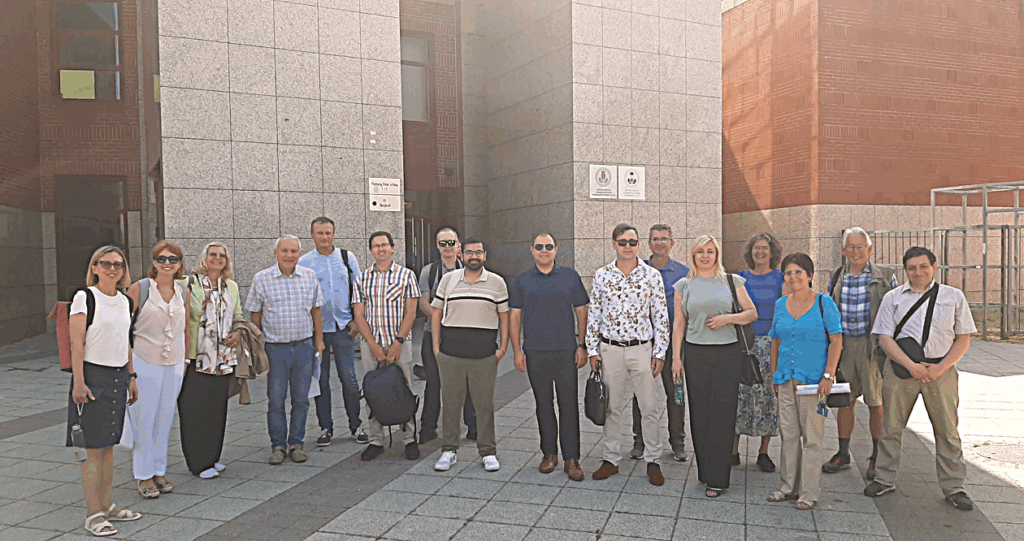The second transnational FITPED-GAI project team meeting took place on 26-27 June 2025 in Budapest, Hungary.
The project has reached a phase that is crucial for setting the tone and direction for all subsequent activities, which are structured around the core themes that were already identified during the kick-off meeting.
- The first topic is “How to help implement GenAI in university education”, which indicates a focus on practical strategies and methodologies.
- The second topic is “GenAI in university education”, which deals with the broader implications and applications of the technology in an academic environment.
- The third topic is “GenAI in programming education”, covering the use of LLM in teaching introductory and advanced programming courses.
The project plan for GenAI into HE implementation outlines several key implementation phases. The “General Introduction” phase is fundamental and includes learning about prompt engineering, preparing a comprehensive prompting course for a wide range of users (covering common LLM communication, prompting for efficiency, best practices and negative examples), and applying prompt engineering as part of introductory workshops or courses where GenAI is expected to be used.
The workshops aim to teach students to ask questions and use GenAI for a variety of purposes: authenticity verification (verifying information from multiple perspectives, discussing it, verifying procedures or correctness of ideas), content creation and instructional design (automating the creation of materials such as trip plans, business start-up procedures, lesson plans, quizzes, examples, code), critical thinking (judging nonsense based on discussion with AI and discussing it, judging nonsense due to bias), exploratory learning (more holistic tasks that allow students to activate problem-solving skills and gain expertise from adjacent areas, e.g. designing a community system for urban citizens), and collaborative group activities (groups taking different sides of an argument and gaining arguments in collaboration with GenAI).
The workshops also cover “Increasing cognitive complexity”, where GenAI can be used to solve complex problems, e.g. in the fields of STEAM, sustainability, urban planning, and analyzing ideological or geopolitical conflicts.
The “Implementation into subjects/areas” phase covers both general subjects and programming teaching and focuses on how GenAI is used as a tool to solve tasks that must take into account the nature of GenAI. This topic represents a challenge for the research team and will probably be the most demanding element of the project.
The success of the project will be primarily driven by the responsible adoption of generative AI in higher education institutions, which requires that AI tools operate fairly, transparently and safely, guided by principles such as accountability, inclusiveness and human oversight. This requires the establishment of clear institutional guidelines for the use of GenAI, in the preparation of which the project researchers will participate.

